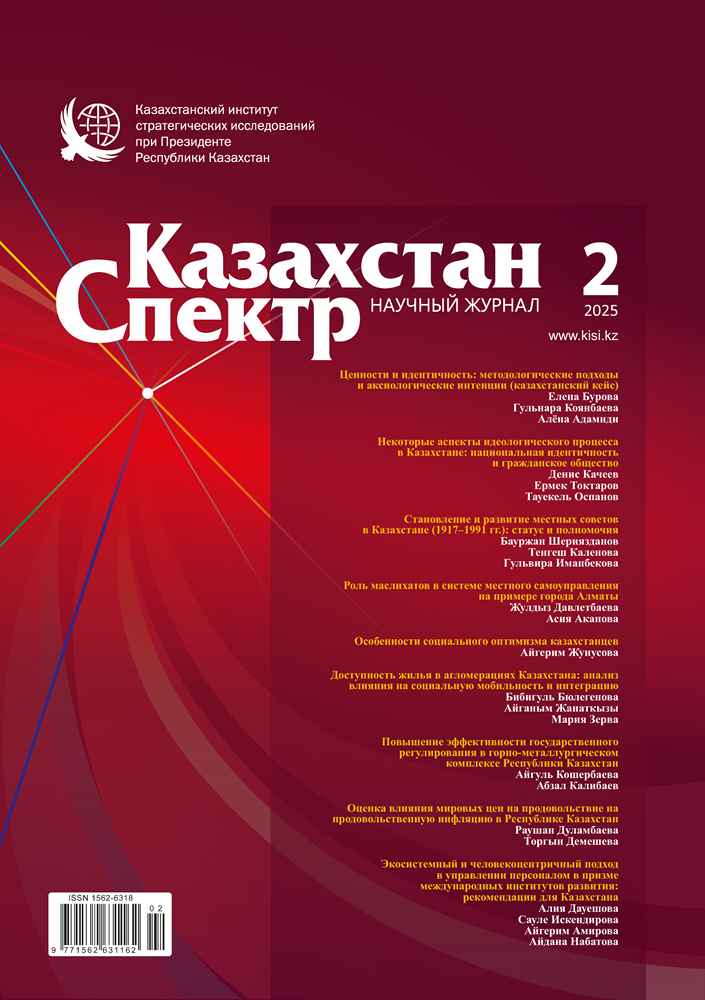Abstract
This study focuses on assessing housing affordability in the major agglomerations of Kazakhstan—Astana, Almaty, and Shymkent—and its impact on the social mobility of the population. The aim of the research is to analyse housing affordability and identify its role in social advancement opportunities. The main directions of the study include a quantitative analysis of data on average wages and housing costs, as well as the calculation of the Housing Affordability Index (HAI). The scientific and practical significance of the research lies in identifying significant differences in housing affordability across cities and their impact on social mobility. Specifically, housing in Astana and Almaty remains unaffordable relative to average wages, hindering social mobility, while the situation in Shymkent is somewhat different. The research methodology involves the collection and analysis of statistical data, allowing for a detailed examination of current trends in housing policy. The key findings highlight the need for a deeper analysis of housing policies and their impact on social integration. This study contributes significantly to understanding the relationship between housing affordability and social processes in Kazakhstan, which can be utilized in the development and adjustment of public policy in this area. The practical significance of the work lies in providing recommendations for improving housing policy to promote social mobility.

This work is licensed under a Creative Commons Attribution 4.0 International License.
Copyright (c) 2025 Kazakhstan-Spectrum


